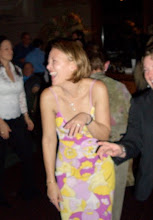After Girl in Landscape, I knew it was only a matter of time before I read my way through Jonathan Lethem's anthology. Most recently, it led me to his highly ambitious - and epically successful - The Fortress of Solitude. This book is further evidence that Lethem is among the very best of today's fiction writers. This is not a page-turner in the "I want to know what happens" sense; it is prose to be savored, language to be enjoyed.
As in Girl in Landscape, in Lethem's hands the setting itself becomes a living, breathing character. The Fortress of Solitude is the coming-of-age story of Dylan Ebdus, a white boy in a black world, whose hippy parents moved to Brooklyn's Dean Street in a show of solidarity with the common man. Before long, his mother deserts, leaving Dylan and his father to their fates. When former soul singer Barrett Rude, Jr. moves in next door with his son Mingus, Dylan's life takes an optimistic turn. Despite their racial differences, Mingus and Dylan become best friends.
As they move through middle school and high school, their relationship is forced to change drastically. Dylan is constantly "yoked" for pocket money; Mingus becomes one of the neighborhood's premier grafitti artists under the pseudonym "Dose." Dylan gets in to Stuyvesant; Mingus all but drops out of public school. Dylan's father sells pop-art while completing his life's masterpiece; Mingus's father spends his post-fame years in a cocaine-and-marijuana haze. Through it all, Dylan and Mingus maintain a bond that allows them to fall back into their comfortable habits regardless of the time that passes.
The end of the first section of the book is marked with a defining moment in both Dylan's and Mingus's lives - one that further splinters their lives along vastly different trajectories. After a brief, well-written and compelling interlude we pick up with Dylan some time after he graduates from UC Berkeley and becomes a music writer. The story continues with Dylan's realization that he needs to return to Dean Street to address one last situation.
The book has received some criticism. For example, the writing changes from the third person in Part 1 to the first in Part 3, a device which I thought worked very well. It accentuated that, despite their different lives, the early story was about Dylan, Mingus, their fathers, other Dean Street characters. As they became men, they lives had irreversibly split to such a degree that no story could truly be about them both.
In addition to the title - a reference to the only place where Superman can be himself - there are a number of other representations of heroism, magic, and even actual comic books. In the hands of a lesser author, these might trivialize a story. Under Lethem's craftmanship, they only enhance. Just a few more of his novels left to read; I am looking forward to them all.
Thursday, February 19, 2009
The Fortress of Solitude
Labels:
literature
Subscribe to:
Post Comments (Atom)


No comments:
Post a Comment